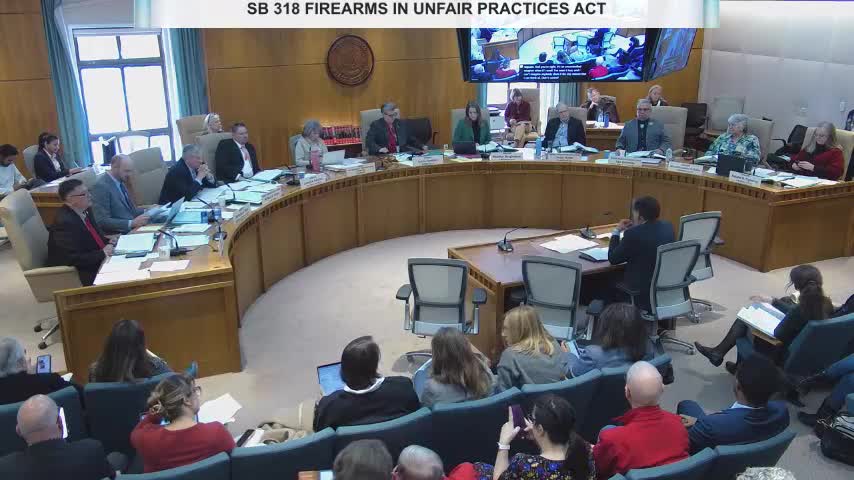Senate committee advances pared‑down paid family and medical leave bill after extensive public testimony
Get AI-powered insights, summaries, and transcripts
Subscribe
Summary
Representative Christine Chandler told the Senate Taxation & Revenue Committee the House substitute for HB 11 would create a state leave fund and a separate Welcome Child rebate; after hours of public comment the committee voted 6–4 to give the substitute a do‑pass recommendation.
Representative Christine Chandler, sponsor of the House substitute for HB 11, told the Senate Taxation & Revenue Committee the bill creates two linked programs: a paid family/medical leave insurance fund funded by small payroll contributions, and a separately funded Welcome Child rebate for new parents. “This bill does not create illness,” Chandler said. “It provides support for individuals who need time off for serious medical or family needs.”
The substitute would allow up to six weeks of wage replacement for covered reasons — medical leave, family wellness (including bereavement), safe leave, military leave and parental leave — and sets employer/employee premium contributions at a reduced level from earlier drafts (sponsor described a point‑of‑payroll split and a small employee contribution). Employers with fewer than five employees are exempt from the employer premium. A separate Welcome Child fund would provide a temporary rebate for families welcoming a child; that program would be paid from appropriations rather than payroll contributions.
Why it matters: proponents said the measure would let New Mexicans keep jobs while meeting caregiving or serious health needs and help employers retain workers in a tight labor market. Opponents warned the bill would raise costs for small businesses, be administratively difficult in rural or specialized workplaces and carry solvency risk.
Supporters included labor groups, advocacy organizations and several people who described personal medical or caregiving crises. Lan Senna of the Center for Civic Policy, a cancer survivor, said the availability of leave made a difference in her care. “The only reason I’m before this committee is because I had access to a comprehensive medical leave,” she said. Local business owners and trade associations — including restaurants, construction, agriculture and health care providers — described likely operational difficulties in finding temporary, qualified replacements and warned the proposal could raise prices and be unsustainable for some employers.
Committee debate focused on benefit length, solvency and the fund’s design. Several senators asked for actuarial detail; the sponsor said the bill requires an actuarial study and reporting to inform adjustments. Senator John Ramos (opposing) listed many industry groups that opposed the bill and urged caution; Senator Mimi Stewart (sponsor in the Senate) and others pressed that comparable programs operate now in other states.
Formal action: Senator Wirth moved a do‑pass recommendation on the House substitute for HB 11; the substitute passed the committee on a 6–4 vote and will proceed to the next committee. The committee record shows a large and divided public response: more than a dozen in‑room supporters and opponents testified; organizers reported hundreds of thousands of e‑mail actions on both sides.
Quotes in context: Representative Christine Chandler: “This bill provides support for individuals who have those conditions or are about to deliver a baby or adopt a child.” Lan Senna, Center for Civic Policy: “Cancer patients like me will continue to struggle and six weeks are not enough… We stand in support.” A construction industry witness: “Bringing in short‑term replacements for skilled trades isn’t always possible.”
Ending: The bill that advanced to the next committee is a slimmed‑down compromise from earlier drafts; key open questions for later committees include the program’s actuarial assumptions, the administrative rules for verifying caregiver relationships and how the Welcome Child rebate will be funded over time.
